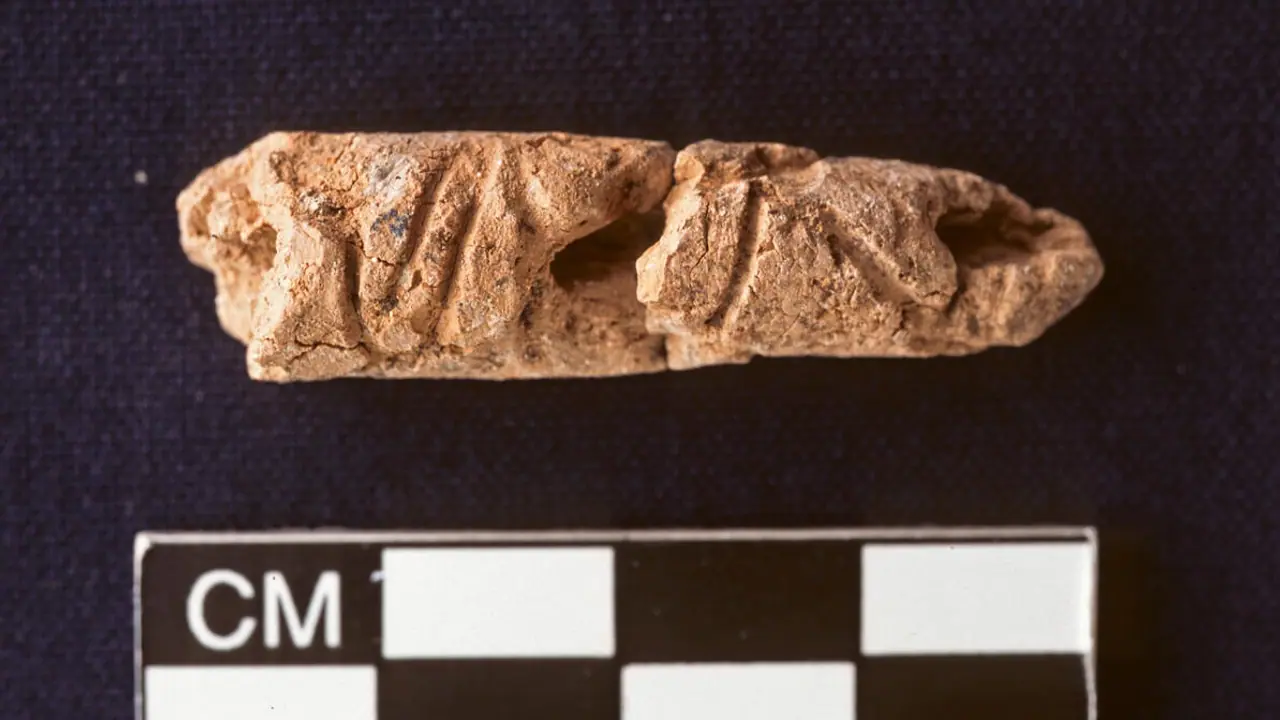Archaeologists at Johns Hopkins University have unearthed clay cylinders, each no longer than a finger, inscribed with the earliest known alphabetic text.
For centuries, the world believed the ancient Egyptians pioneered the alphabet. Now, a groundbreaking discovery has pushed the origins of alphabetic writing back by a staggering 500 years.

Archaeologists at Johns Hopkins University have unearthed clay cylinders, each no longer than a finger, inscribed with the earliest known alphabetic text. Discovered at Tell Umm-el Marra, a once-thriving trade city in modern-day northwestern Syria, these artifacts date back to 2400 BC. Carbon-14 dating confirmed their age, predating previously known alphabetic scripts by half a millennium.
“These cylinders could have been labels for drinking vessels, perhaps wine containers,” suggested Professor Glenn Schwartz, the archaeologist behind the discovery, according to Daily Mail. “We can only speculate what the writing says, but it likely denotes names or descriptions of property.”
The clay cylinders were found in a well-preserved Early Bronze Age tomb, surrounded by skeletons, gold and silver jewelry, intact pottery, and other treasures. Among these treasures, the lightly baked cylinders bore what appeared to be primitive alphabetic inscriptions. Professor Schwartz speculates that the perforated cylinders might have been attached to vessels as labels, possibly indicating ownership or contents.
“This new discovery shows people were experimenting with new communication technologies much earlier and in a different location than we had imagined,” Schwartz remarked. “Alphabetic writing changed how people lived, thought, and communicated.”
The findings challenge the prevailing theory that the alphabet emerged around 1900 BC in Egypt. It was long believed that illiterate miners adapted Egyptian hieroglyphic symbols to create a simplified script for their Semitic language. The system spread across the Levant and later evolved into the Greek and Latin alphabets.
But the Syrian artifacts suggest a different origin story. “Our discoveries indicate the alphabet may have originated in a different place and time altogether,” said Schwartz. “This rewrites the narrative entirely.”
Before the invention of the alphabet, writing systems like hieroglyphs were notoriously complex, accessible only to a privileged few. “There were thousands of symbols, used in very intricate ways,” explained Schwartz. “The alphabet’s simplicity democratized writing, allowing more people to read and write.”
The clay cylinders, along with their tomb’s other contents, underscore the historical significance of Tell Umm-el Marra, a key trade hub during the Early Bronze Age. Over 16 years of excavation at the site, Schwartz and his colleagues uncovered a treasure trove of artifacts that continue to challenge historical assumptions.
The implications of this discovery extend beyond mere historical curiosity. “The rate of decay in carbon-14 has confirmed the age of these objects, providing conclusive proof that alphabetic writing began much earlier than previously believed,” said Schwartz.
Professor Schwartz will unveil the full details of this revolutionary find at the American Society of Overseas Research’s Annual Meeting on November 21 at Hilton Boston Park Plaza, Massachusetts.
